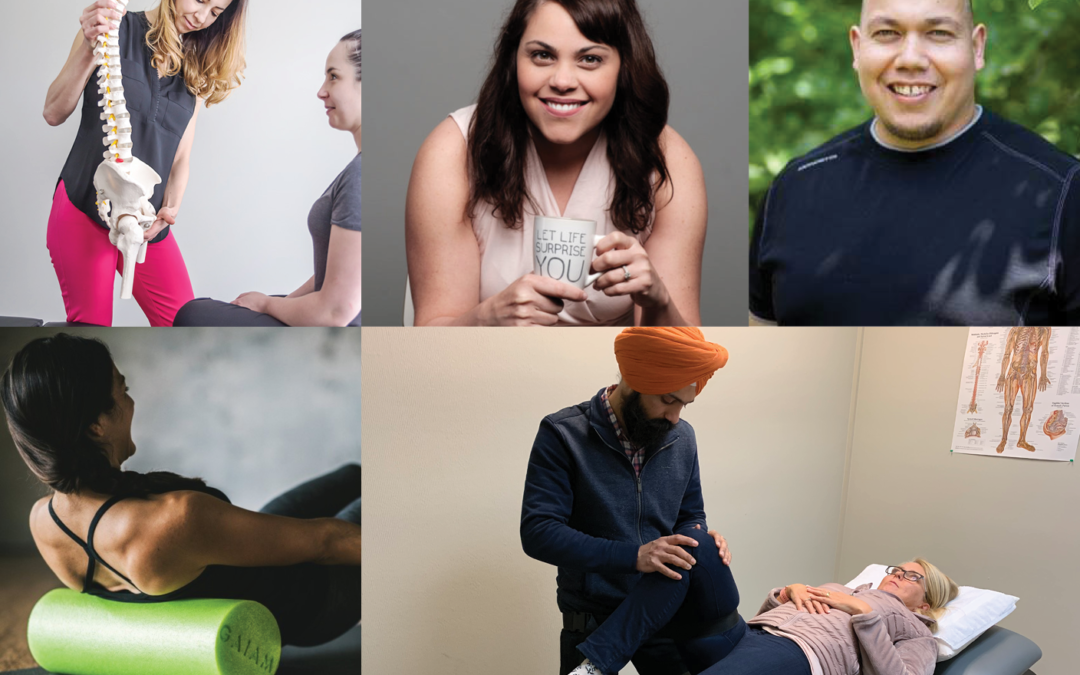Fraser Valley RMT’s and Kinesiologists – get your CEC’s without travelling far. Newleaf Total Wellness Centre is excited to host Brian Justin, MKin, CEP, CSCS, CHEK-1, FMS-1, CES, PES, CSE-4, HLC-2, MOS, MMS . This is an amazing course and it is broken down into 4 parts over 3 Sundays to help give you a chance to absorb the material and put it into practice before the next class. Lots of one on one instruction in a fun and relaxed atmosphere. Class size is small, so act fast.
About this Event
Essentials of Core Assessment and Conditioning
Presenter:
Brian Justin, MKin, CEP, CSCS, CHEK-1, FMS-1, CES, PES, CSE-4, HLC-2, MOS, MMS
This 4-part workshop will discuss the function of the core as it relates to weight-training and reconditioning of the low back pain. There is a lot of controversy over how to set the core, what exercises to perform to enhance function, and how to assess core function from a functional standpoint. This workshop will begin with a discussion of functional anatomy of the core and how to sift through the different viewpoints with the end result of you being able to figure out your own approach to core training! Following this discussion three more workshops will be devoted to learning various assessments of core function and the corrective exercise progressions to help build core function and correct the deviations found on assessment. Additionally, training common spinal conditions will be discussed as well.
Schedule:
Part 1: Sept 8th, 2019, 9AM – 1PM
Part 2: Sept 15th, 2019, 9AM – 1PM
Part 3 & 4: Oct 6th, 2019, 9AM – 5:30PM
*Note: Attendance is required for all sessions in order to complete the course.
Location:
NewLeaf Total Wellness Centre
2309 McCallum Road, Abbotsford, BC V2S 3N7
Student Objectives:
By the end of the workshop, the student will:
• Understand the function of the core and its functional anatomy
• Learn strategies to achieve core stability
• Learn an array of core function assessments
• Learn a plethora of exercises to build a well functioning core and help clients recondition after common spinal injuries.
Part 1 – The Anatomy and Physiology of the Core (4 hours)
Part one of the Core Conditioning Specialist Course will be an informative lecture on the anatomy, physiology, and present research on core function. Topics include:
• Core anatomy
• Core Slings and their control of movement
• Research on core exercise progressions
• Practical: How to set the core
Hours 1-3: Core Anatomy and Physiology lecture
Hours 3-4: Learning various strategies to brace the core and how to teach the brace.
Part 2 – Low Threshold and Deep Longitudinal Sling Assessment and Training (4 hours)
Part two of the Core Conditioning Specialist Course will go over spinal readiness, intrinsic stabilization system assessment, deep longitudinal sling Assessment and training exercises to improve core connection.
• Spinal Readiness Assessment
• Breathing Assessment and retraining
• Deep longitudinal System Assessment
• Somatics Phase 1 Core Connection exercises
Hours 1-2:30: Learning how to assess the Deep Longitudinal System and Superficial Front line
Hours 2:30-4: Learn and practice low threshold core exercises
Part 3 – Core Sling Assessment and Core Control Training (4 hours)
Part three continues with assessment of the anterior/posterior oblique and lateral sling assessments and learning Phase 2 Core Control exercises.
• Anterior oblique sling mobility, sequencing, and capacity evaluation
• Posterior oblique sling mobility, sequencing, and capacity evaluation
• Lateral sling mobility, sequencing, and capacity evaluation
• Phase 2 core control exercises to improve sling functions
Hours 1-2:30: Learning how to assess the Anterior/Posterior Oblique Sling and Lateral Sling
Hours 2:30-4: Learn and practice Neuromuscular control core exercises
Part 4 – Core Performance Assessment and Strength and Power Training (4 hours)
Part 4 concludes our core journey with core performance assessment and core strength and power exercises to improve lifting and sport performance.
• Strength and Power Core Assessment
• Phase 3 and 4 Core Strength and Power Exercises
• Exercises featuring rollers, sandbags, twister /tornado balls, and medicine balls etc. will be learned and practiced
Hours 1-2: Learning how to assess Core Strength and Power
Hours 2-4: Learn and practice Strength and Power athletic core exercises

